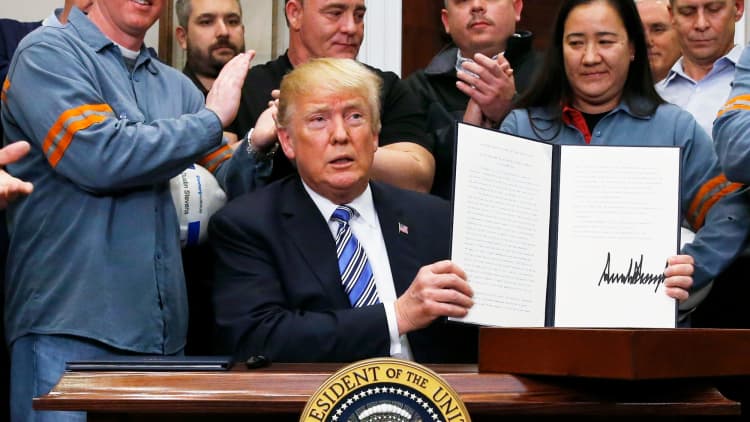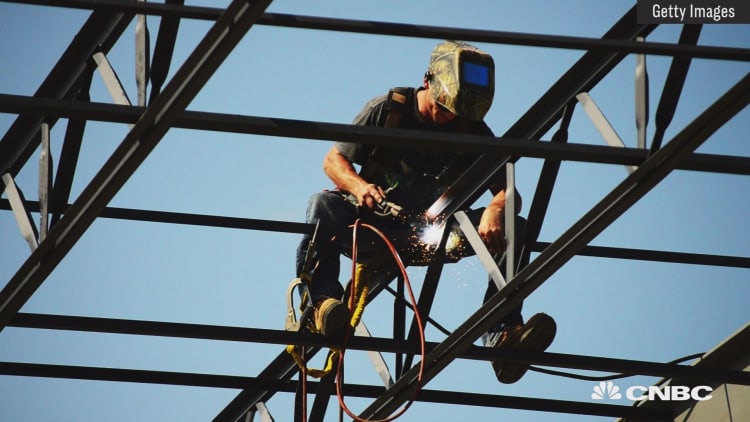
China is taking a measured approach with its proposal to slap retaliatory tariffs on U.S. goods, according to experts.
Beijing on Friday said it may target 128 U.S. products with an import value of only $3 billion in response to President Donald Trump's announcement of tariffs on up to $60 billion in Chinese imports.
U.S. goods exported to China in 2016 totaled $115.6 billion, according to official data. Given the size of the two countries' trade, Beijing's limited focus on just $3 billion of U.S. imports is "very cautious," according to a former assistant U.S. Trade Representative for China Affairs.
This tells me they are sending signals for a potential deal down the line.Alex Caprivisiting senior fellow, National University of Singapore
"They want to show that they have taken note of U.S. actions and are going to be strongly resisting, but they don't want to be seen as escalating things further," said Timothy Stratford, who held the China post at the USTR from 2005 to 2010.
"The Chinese recognize that everyone has a lot to learn if the U.S. and China move into a trade war," said Stratford, who now is managing partner at law firm Covington & Burling's Beijing office.
China claims to be a champion of global trade, though it limits foreign companies' access to its domestic market, forces foreign companies to take on Chinese partners if they want to operate within its borders, and requires foreign companies to hand over technological know-how in exchange for market access.
Still, Beijing has promoted itself as a trade globalist in an attempt to contrast itself with Trump's protectionism.
"China does not want a trade war with anyone," the Chinese embassy in Washington said in a statement on Thursday. "But China is not afraid of and will not recoil from a trade war."
Trade scholar Alex Capri, a visiting senior fellow at National University of Singapore, agreed that China's response is cautious but said it's likely designed to leave wiggle room for bargaining. "This tells me they are sending signals for a potential deal down the line," Capri said.
Wendy Sherman, former undersecretary of state for political affairs at the U.S. State Department, echoed that view: "It may be a negotiating tactic."
Still, many now fear China's response could mark the start of tit-for-tat trade actions.
"We're entering a dark tunnel," Stratford warned. "At the end of the day, back and forth penalties don't solve the underlying problems."
WATCH: Trump's tariffs could lead to unintended consequences


